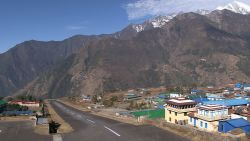Story highlights
Madagascar and neighboring Comoros Islands are home to the world's lemur population
But one of the country's leading scientists says lemurs are on the "verge of extinction"
More than 90% of Madagascar’s lemurs “are on the verge of extinction,” says one of the country’s leading scientists.
It is a grim prediction for the cute primates, which are only found on Madagascar and the neighboring Comoros Islands.
“We’ve not much time left,” says Jonah Ratsimbazafy, Madagascar’s foremost primatologist. “We have to work together to save the living lemurs before it’s too late.”
Madagascar is an ecological marvel – 92% of mammals indigenous to the island exist nowhere else on Earth. And despite this distinction, at present 24 of the island’s known lemur species, including the silky sifaka and the sibree’s dwarf lemur, are listed as “critically endangered,” according to the International Union for Conservation of Nature red list.
But climate change and man’s impact on the ecosystem could take these primates beyond the point of no return, warns Ratsimbazafy.
Lemurs of Madagascar
“People cut down trees this year and burn, and next year they plant. The following year they cut a new forest. And they do the same for many years. What happens? After many years, the soils lose their fertility, and when the rains come, it’s erosion.
“Madagascar is now bleeding. Because the forest is gone, the soil is eroded and what’s happened: nobody can survive.”
Least of all the lemurs. Ratsimbazafy says that 30,000 hectares of rainforest disappears annually. At this rate, Madagascar’s rainforest will cease to exist within the next 25 years.
Madagascar: A magnificent island for your travel list
“In Madagascar we have 107 types of lemur. They all live in the forest. Without the forest, they cannot survive.”
The self-confessed crusader, a native of Madagascar’s capital of Antananarivo, says education is among the most important weapons in his arsenal.
Ratsimbazafy says learning about indigenous animals, such as lemurs, is not part of the school curriculum, an issue he has tried to rectify.
“They need to understand, they need to learn first; they need to love the lemurs.”
From Antarctica to Africa, penguins are at risk
As a primatologist, he sees it as his duty to confront his fellow countrymen about their practices, and steer them in the right direction.
“If humans are part of the problem,” he says, “they should also be part of the solution. We have to change the attitude and that’s possible. That’s what we’re working on right now.”































